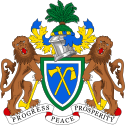
The politics of Zimbabwe occurs in a society deeply divided along lines of race, ethnicity, gender and geography. The ZANU–PF party has historically been dominant in Zimbabwe politics. The party, which was led by Robert Mugabe from 1980 to 2017, has used the powers of the state to intimidate, imprison and otherwise hobble political opposition in Zimbabwe, as well as use state funds and state media to advance the interests of the party.

Politics of Ghana takes place in a framework of a presidential representative democratic republic, whereby the president of Ghana is both head of state and head of government, and of a two party system. The seat of government is at Golden Jubilee House. Executive power is exercised by the government. Legislative power is vested in both the government and Parliament. The judiciary is independent of the executive and the legislature.

The Gambia, officially the Republic of the Gambia, is a country in West Africa. Geographically, The Gambia is the smallest country in continental Africa; it is surrounded by Senegal, except for its western coast on the Atlantic Ocean. It is situated on both sides of the lower reaches of the Gambia River, which flows through the centre of the country and empties into the Atlantic Ocean. The national namesake river demarcates the elongated shape of the country, which has an area of 11,300 square kilometres (4,400 sq mi) and a population of 2,468,569 people in 2024. The capital city is Banjul, which has the most extensive metropolitan area in the country; the second- and third-largest cities are Serekunda and Brikama.

The Politics of Azerbaijan take place in an authoritarian system where elections are not free and fair, political opponents are repressed, civil rights are limited, human rights abuses are widespread, corruption is rampant, and power is concentrated in the hands of President Ilham Aliyev and his extended family.

The president of India is the head of state of the Republic of India. The president is the nominal head of the executive, the first citizen of the country, as well as the supreme commander of the Indian Armed Forces. Droupadi Murmu is the 15th and current president, having taken office from 25 July 2022.
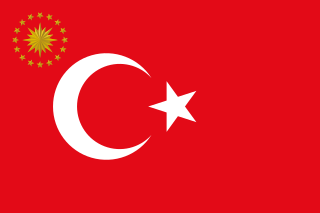
The president of Turkey, officially the president of the Republic of Türkiye, is the head of state and head of government of Turkey. The president directs the executive branch of the national government and is the commander-in-chief of the Turkish military. The president also heads the National Security Council.

The President of Colombia is the head of state and head of government of the Republic of Colombia. The president heads the executive branch of the national government and is the commander-in-chief of the Military Forces of Colombia.
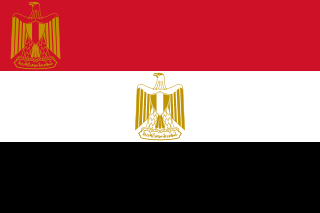
The President of the Arab Republic of Egypt is the executive head of state of Egypt and the de facto appointee of the official head of government under the Egyptian Constitution of 2014. Under the various iterations of the Constitution of Egypt following the Egyptian Revolution of 1952, the president is also the supreme commander of the Armed Forces, and head of the executive branch of the Egyptian government. The current president is Field Marshal Abdel Fattah el-Sisi, who has been in office since 8 June 2014.
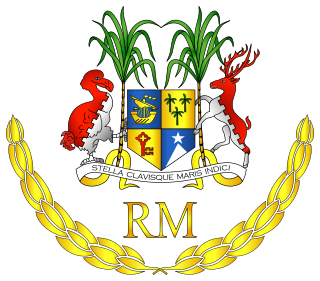
The President of the Republic of Mauritius is the head of state of the Republic of Mauritius. Mauritius is a parliamentary republic, and the president functions as a ceremonial figurehead, elected by the National Assembly as set out by the Constitution of Mauritius. The current office-holder is Prithvirajsing Roopun. He took the office on 2 December 2019. The president's official residence is the State House.
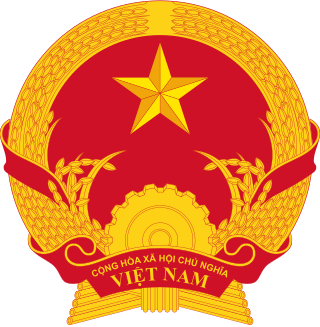
The president of the Socialist Republic of Vietnam is the head of state of Vietnam, elected by the National Assembly of Vietnam from its delegates. Since Vietnam is a one-party state, candidates for the post are nominated by the Central Committee of the Communist Party of Vietnam. The officeholder is generally considered to hold the second-highest position in the political system, practically after the General Secretary of the Communist Party of Vietnam.

The president of the Federal Republic of Nigeria is the head of state and head of government of the Federal Republic of Nigeria. The president directs the executive branch of the federal government and is the commander-in-chief of the Nigerian Armed Forces.
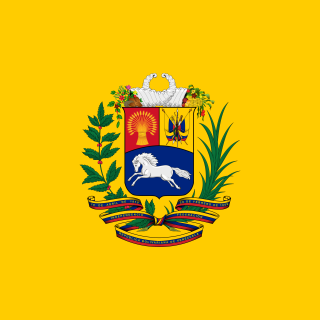
The president of Venezuela, officially known as the President of the Bolivarian Republic of Venezuela, is the head of state and head of government in Venezuela. The president leads the National Executive of the Venezuelan government and is the commander-in-chief of the National Bolivarian Armed Forces. Presidential terms were set at six years with the adoption of the 1999 Constitution of Venezuela, and presidential term limits were removed in 2009.

The president of the Republic of Indonesia is the head of state and head of government of the Republic of Indonesia. The president leads the executive branch of the Indonesian government and is the commander-in-chief of Indonesian National Armed Forces and Indonesian National Police. Since 2004, the president and vice president are directly elected to a five-year term, once renewable, allowing for a maximum of 10 years in office. The current President of the Republic of Indonesia is Joko Widodo.

The vice president of South Sudan is the second highest political position obtainable in South Sudan. Additionally, a temporary position called first vice president was created in August 2015. In 2020, a coalition agreement was reached in 2020 creating five vice presidents.

The President of the People's Republic of China, commonly called the President of China, is the state representative of the People's Republic of China, which on its own is a ceremonial office and has no real power in China's political system. However, since 1993, the post has been held by the general secretary of the Chinese Communist Party (CCP) and chairman of the Central Military Commission, who is China's de facto leader.

The chief justice of the Gambia is the head of the Gambian judiciary and is responsible for the administration and supervision of the courts. The chief justice is also the chief judge of the Supreme Court of the Gambia.

Aja Fatoumata C.M. Jallow-Tambajang is a Gambian politician and activist who served as Vice-President of the Gambia and Minister of Women's Affairs from February 2017 to June 2018, under President Adama Barrow.
